This website uses cookies so that we can provide you with the best user experience possible. Cookie information is stored in your browser and performs functions such as recognising you when you return to our website and helping our team to understand which sections of the website you find most interesting and useful.
Monday 31 October 2016, 11:17 | By Chris Cooke
Sales of new Avenged Sevenfold LP could impact on Warner legal battle
Artist News Business News Labels & Publishers Legal Releases Top Stories

Bosses at Warner Music might have been slightly annoyed at the surprise announcement during a virtual reality gig last week that Avenged Sevenfold were releasing a brand new album via Universal’s Capitol Records, what with them being in the midst of litigation over a claim the metal outfit unfairly bailed on their previous deal with the Warner Bros label. Though lawyers for the mini-major might have actually been smiling at the news.
As previously reported, Warner sued Avenged Sevenfold earlier this year after the band declared that they were no longer signed to the major, despite having only delivered four of the five albums they committed to release with the record company back in 2004. The Californian band cited a law that exists in their home state that frees people from ‘personal service’ contracts after seven years.
The so called ‘seven year rule’ has been employed numerous times within the Californian entertainment industry, often resulting in debates about the exact nature of contracts between performers and entertainment businesses. The principle interferes with record contracts in particular, because they are normally based around a set number of albums rather than a set number of years.
When it went legal in January, Warner argued that it had already invested significant funds into Avenged Sevenfold’s new recordings which, it said, it had been led to believe would be released by Warner Bros like the outfit’s previous four LPs.
The band’s lawyer, Howard King, denied his clients had misled the label while adding that, anyway, even if they had been working with the major on new material that didn’t stop them from employing the seven year rule. He also added that the band decided to leave Warner because there had been so many executive changes at the company, all their key contacts there had now left the business.
Warner, meanwhile, has decided to release a best of collection from the Avenged Sevenfold catalogue it controls, seemingly without the band’s involvement, according to King. Whether or not the band pre-empting that best of with a new record damages the potential impact of that catalogue release is debatable, arguably it makes the band newsworthy again potentially boosting sales of the Warner compilation record during the Christmas period.
Though that’s not why Warner’s lawyers might be glad that Capitol has already put out a new record from the band. The Wall Street Journal points out that there is a little used proviso to California’s seven year rule that says that if an artist uses it to end a relationship with a record company before delivering all the albums required by their record deal, the music firm could sue for damages over the undelivered recordings.
So, if Warner accepts that the seven year rule allows Avenged Sevenfold to go their own way and sign up with Universal, can it nevertheless go to court to try and cover its losses in relation to the lost album? And if so, what damages can it claim?
Some legal experts reckon that if and when Warner does seek damages, the financial performance of new record ‘The Stage’ could prove useful in trying to ascertain what the mini-major lost by the band not delivering the five albums committed to by their 2004 record contract. If that new LP had not been released before any such claim got to court, then it would be harder to estimate what Warner might have made on album number five.
Though, of course, King reckons that the potential sales of ‘The Stage’ should have no bearing on the Warner dispute. “We don’t know what Warner could have done with an Avenged album other than screw it up”, he told the Journal. Warner, after all, aren’t so proactive in all that new fangled VR nonsense that helped launch the band’s new record. “These are two completely different companies”, the legal man added.
So we’ll see. Warner hasn’t remarked on the potential of ‘The Stage’ sales helping in its legal battle with the band, saying it doesn’t comment on pending litigation, though it would like the world to know that “we’re proud of our partnership with Avenged Sevenfold over four great records”. By which they possibly mean “please buy the new album, it will really help us when this gets to court”.
READ MORE ABOUT: Avenged Sevenfold | Capitol | Universal Music | Warner Bros Records | Warner Music
Monday 31 October 2016, 11:15 | By Chris Cooke
Live Nation fails to have fatal stage collapse case dismissed
Business News Legal Live Business

A judge in Ontario last week rejected efforts by Live Nation to dismiss the criminal action that followed the death of drum tech Scott Johnson, who died when staging collapsed ahead of a Radiohead show in Toronto in 2012.
As previously reported, Johnson was killed and three others injured after a scaffolding structure collapsed onto the open-air stage on which Radiohead were due to perform. The show was promoted by Live Nation and the live music giant was subsequently charged under Ontario’s Occupational Health And Safety Act. Optex Staging & Services Inc was also charged over four alleged breaches of health and safety laws, while an engineer working on the show, Domenic Cugliari, received one charge.
The criminal case arrived in court last year, but hopes of a speedy resolution were not met, and further hearings have taken place at various points this year. It’s thought a verdict could now follow next January, but Live Nation and Cugliari recently requested that the case be dismissed because of the “unreasonable delay”. They made the claim based on a recent precedent in Canadian law over unreasonably long court battles.
Judge Shaun Nakatsuru last week rejected the call for dismissal, arguing that the case against Live Nation and Cugliari was complex, with expert witnesses and technical reports required to inform the proceedings, and with that in mind the fact the criminal case had been slow-going was excusable.
Johnson’s family back in the UK had criticised Live Nation’s bid to end the case without a proper conclusion, and his father, Ken, who travelled to last week’s hearing welcomed Nakatsuru’s conclusion. He told the Toronto Star that “without the trial being completed, nothing would have been learned”, adding that “I would really like to speak with Live Nation and tell them to get on with it. I think they’re starting to damage their reputation … Now there’s an opportunity for Live Nation and Mr Cugliari to present their defence”.
The trial is now set to resume in early December.
READ MORE ABOUT: Live Nation | Radiohead | Scott Johnson
Monday 31 October 2016, 11:13 | By Chris Cooke
Yet more people want a co-write on Uptown Funk
Artist News Business News Labels & Publishers Legal
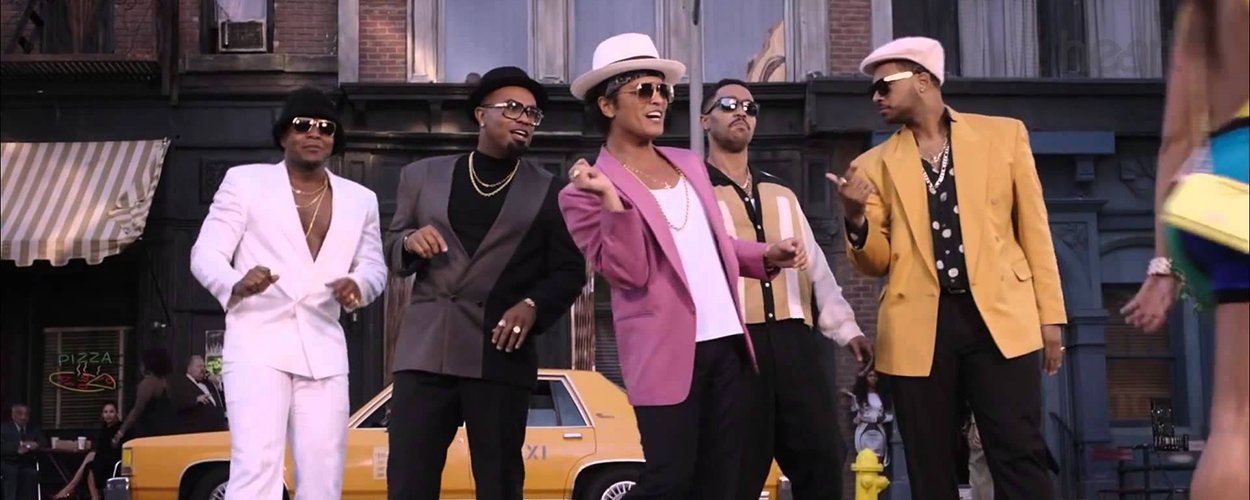
Maybe we should all be given a songwriting credit on the Bruno Mars and Mark Ronson hit ‘Uptown Funk’, just in case.
An American electro-funk band called Collage have sued the dynamic duo and all their music business pals claiming that ‘Uptown Funk’ rips off their 1983 single ‘Young Girls’. Actually, only one of Collage is still alive, Larry White, though the estates of his two former bandmates are also listed as plaintiffs on the action.
According to Pitchfork, the lawsuit claims that “many of the main instrumental attributes and themes of ‘Uptown Funk’ are deliberately and clearly copied from ‘Young Girls’, including, but not limited to, the distinct funky specifically noted and timed consistent guitar riffs present throughout the compositions, virtually if not identical bass notes and sequence, rhythm, structure, crescendo of horns and synthesisers rendering the compositions almost indistinguishable if played over each other and strikingly similar if played in consecutively”.
So there you go. As previously reported, The Gap Band were added as co-writers on ‘Uptown Funk’ because of its similarities to their 1979 hit ‘Oops Up Side Your Head’, while earlier this year another group called The Sequence accused Mars and Ronson of ripping off their 1979 song ‘Funk You Up’, though they are yet to go legal.
READ MORE ABOUT: Bruno Mars | Collage | Mark Ronson
Monday 31 October 2016, 11:11 | By Chris Cooke
Music Venue Trust criticises peer for comments on anti-terror training
Business News Live Business
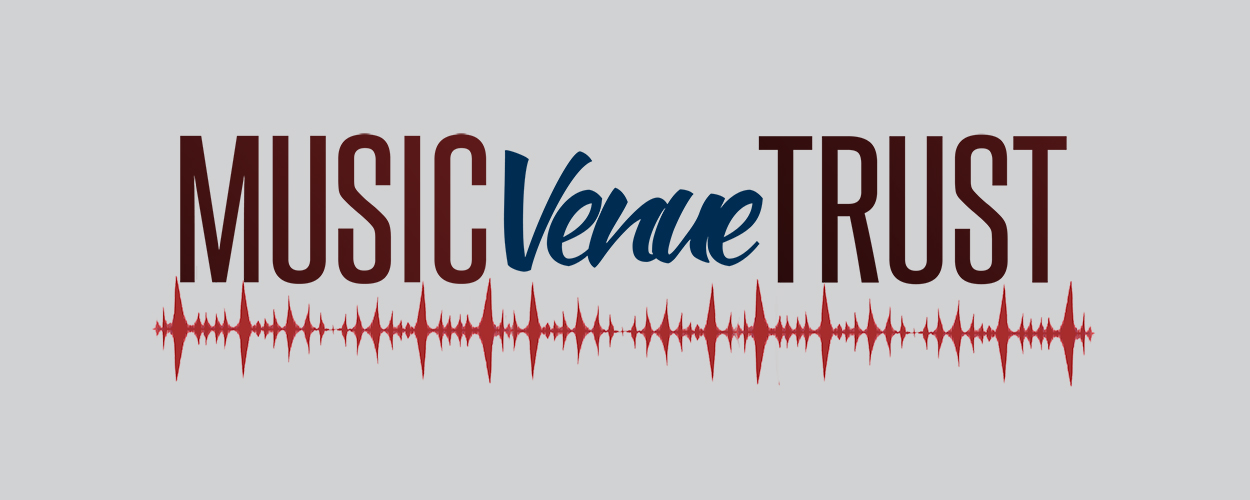
The Music Venue Trust has hit out at comments made by Ruth Henig, a member of the House Of Lords, over whether or not music venues are doing enough to provide staff with training on how to deal with any potential terrorist attack.
The ability of venues to deal with such incidents has been increasingly debated in the last year, of course, since the terrorist attacks on the Bataclan venue in Paris last November. Henig told the BBC’s ‘Victoria Derbyshire’ programme last week that she thinks the Licensing Act 2003 should be amended to include mandatory anti-terror training.
She told the BBC: “There are clearly a number of venues – often the larger venues, I think, but not always – who have airport-style security, who, for example, do have metal detectors, who do have very well-trained security personnel and they top up this training regularly”.
“But I think at the other end there is a tail of venues who aren’t taking it seriously”, she continues. “Who don’t co-operate, who don’t take up the offers that are made to them and where I think there are some concerns. And the issue is, how do you get to that tail of venues who are perhaps not doing as much as they should be about security?”
Henig has extra knowledge on security matters – though might also be slightly biased on the requirements of venues in this domain – because she happens to be Chair of security firm SecuriGroup, which, amongst other things, provides event and venue security services.
However, the Music Venue Trust’s Mark Davyd told IQ that Henig seemed to be unaware of work already underway in this domain, saying: “It is unfortunate Baroness Henig should have made such an ill-judged statement without contacting us. We would have been able to reassure her that small music venues are fully engaged with [the Metropolitan Police’s counter-terrorism initiative] Project Griffin, which was presented at Venues Day 2016 and was warmly received by over 200 music venues”.
He goes on: “There is no evidence to suggest that music venues are averse to engage with the police or any other non-commercial security agencies when it comes to issues surrounding the safety of the public. [And] if any grassroots music venue feels under-informed about Project Griffin, Music Venue Trust is working with the Met and we are happy to supply further information”.
READ MORE ABOUT: Music Venue Trust | Ruth Henig
Monday 31 October 2016, 11:10 | By Andy Malt
Twickets launches new funding round
Business News Digital Live Business

Twickets has announced a new funding round, which will see existing as well as new investors put more money into the face-value ticket resale platform.
“With significant support from the entertainment industry and our loyal followers, we will continue to grow and develop the platform, making it easier and more efficient for fans to resell tickets”, says Twickets CEO Richard Davies. “We have been extremely encouraged by the level of interest that we’ve received from industry for this round so far, and now look forward to opening up the opportunity to our own community”.
Original backer, co-founder of Chrysalis Records Chris Wright, who has agree to pump further money into the project, adds: “Online ticket touting is damaging to the industry and deeply affects loyal groups of fans who are ripped off and left empty handed. In the last eighteen months, Twickets has been steadfastly innovating across the business to make face value resale a convenient solution for fans, so I’m very happy for the opportunity to re-invest”.
Originally launched in 2011 as a Twitter account promoting tickets being resold at face value or less, the service has since developed into a full-scale resale platform. It aims to rival bigger name services where tickets are routinely sold for prices greatly in excess of their original prices.
As previously reported, earlier this year, it launched a new ticket reissue and waiting list system with the End Of The Road festival, making the process more efficient and less open to abuse.
READ MORE ABOUT: Twickets
Monday 31 October 2016, 11:07 | By Andy Malt
Shut up, Bob Dylan does want his Nobel Prize
Artist News Awards
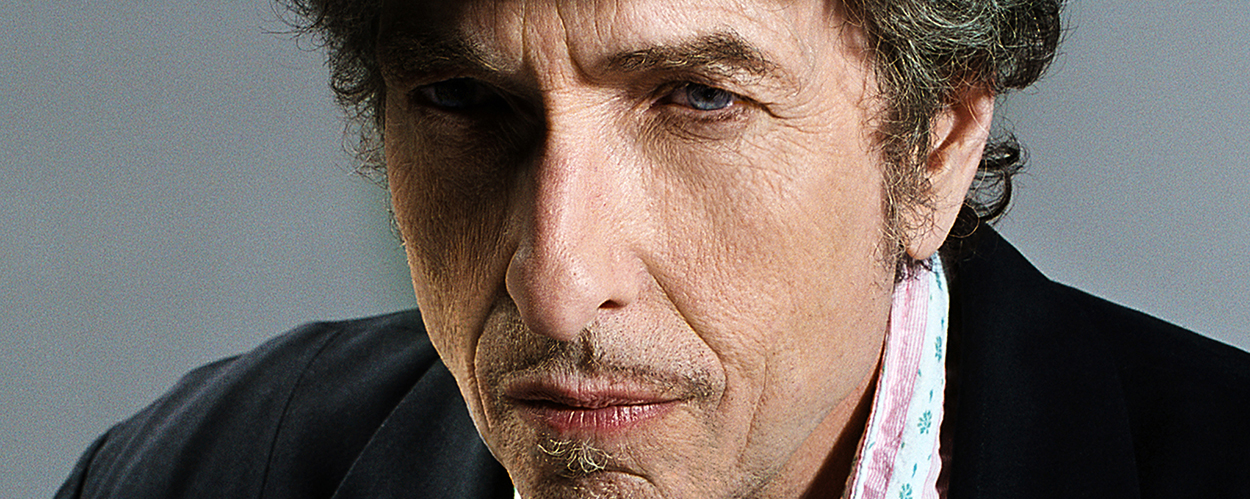
Bob Dylan is totally chuffed to have won the Nobel Prize For Literature and would very much like to attend the prize-giving ceremony. Oh what, you thought he was being aloof? That’s your problem, because you want everything now, now, now.
Speaking to The Telegraph last week, the musician finally acknowledged the award, saying that it was “amazing, incredible” and adding, “Whoever dreams about something like that?” He also said that he would “absolutely” turn up to receive his prize in Sweden “if it’s at all possible”.
Though it’s not really The Telegraph that needs to know all this, given that the organisers of the Nobel prizes had been getting increasingly tetchy about the singer-songwriter’s failure to confirm that he would accept their award. But don’t worry. Dylan subsequently picked up the phone to the Swedish Academy too.
According to a statement from said organisers, he told the Academy’s Sara Danius: “The news about the Nobel Prize left me speechless. I appreciate the honour so much”.
So, there you go. He wasn’t being “rude and arrogant” in his silence, he just needed a moment to collect his thoughts. Maybe you’re the rude and arrogant one. Huh? Did you think of that? I hope you’re sorry. The big question now, of course, is will Anthony Kiedis win the prize next year?
READ MORE ABOUT: Bob Dylan | Nobel Prize
Monday 31 October 2016, 11:05 | By Andy Malt
Morrissey and Marr discussed Smiths reunion
Artist News
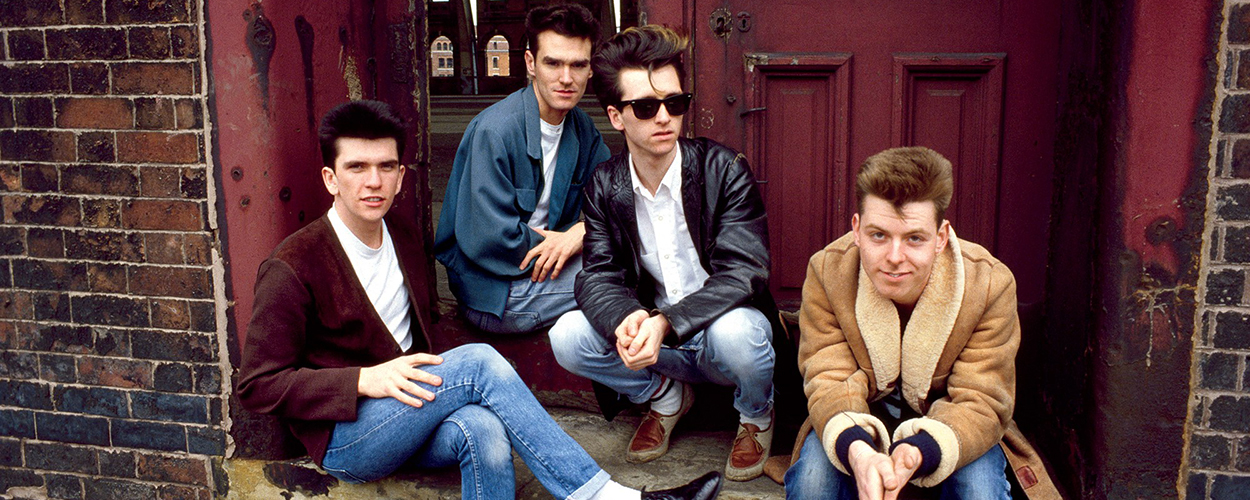
In recent years, The Smiths reunion has been “not happening”, “never, ever, ever, ever, ever, ever, ever, ever” happening, and not happening because “not everybody is a fat old slag”. Also, anyone who thinks that there should be a reunion should “go and find a hobby”. Which all sounds pretty definitive. Although it now turns out that Morrissey and Johnny Marr did actually decide to reunite eight years ago, but just never got around to it.
“The conversation about re-forming came out of the blue”, Marr tells The Guardian, recalling an afternoon spent in the pub with Morrissey in 2008 – their first meeting for more than a decade. “I didn’t go there with that in mind. But there had been quite a few rumours about it, so naturally we discussed it. ‘It could happen…’ ‘How d’you feel about it?’ ‘What if?’ And off we went. I think we were both as keen as each other”.
Discussions apparently continued, then Marr went off on tour with The Cribs and never heard from Morrissey ever again. I don’t know if we should take this as a comment on Marr’s time with The Cribs. Possibly. Maybe not.
As for whether Marr thinks the two could at least be friends again, he says: “I don’t. I think it’s run its course. I don’t feel unfriendly in any way towards Morrissey – there’s just no need for it. One of the things we had in common was that we lived for work, and we’re too busy doing what we’re doing now”.
So, there you go, we never knew how close we came to real disaster, ie an actual Smiths reunion. Someone should make a film about this with Bruce Willis as Morrissey.
READ MORE ABOUT: Johnny Marr | Morrissey | The Smiths
Monday 31 October 2016, 11:00 | By Andy Malt
Letter from John Lennon to The Queen discovered in carboot haul
Artist News
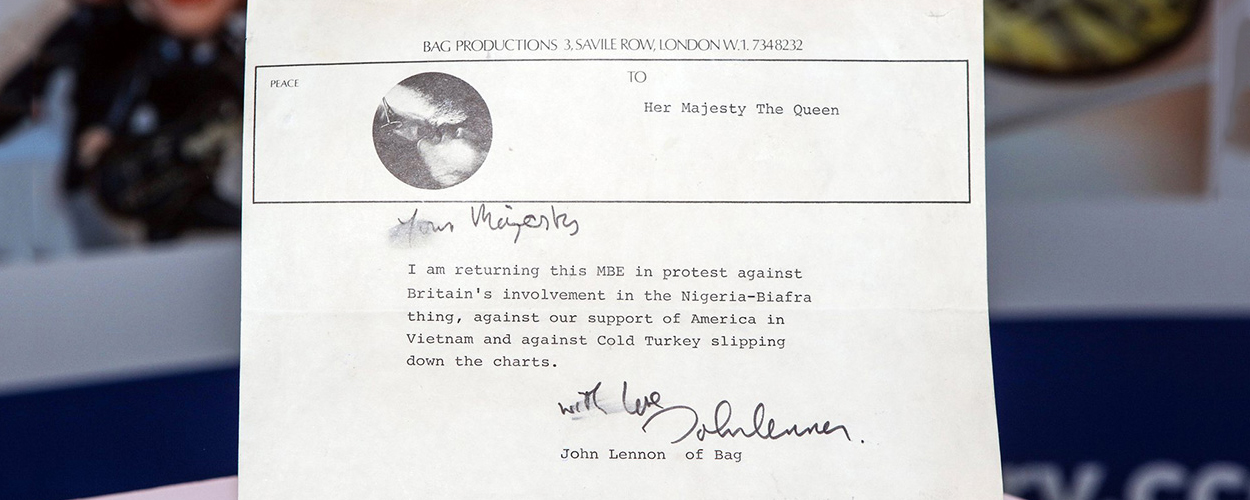
A letter written by John Lennon to the Queen listing reasons for returning his MBE has been found tucked into a record sleeve bought at a carboot sale. The reasons included then current events in Nigeria and Vietnam, and that week’s Top 40.
The letter reads: “I am returning this MBE in protest against Britain’s involvement in the Nigeria-Biafra thing, against our support of America in Vietnam and against [Plastic Ono Band’s] ‘Cold Turkey’ slipping down the charts”.
Lennon originally accepted his prize from the monarch in 1965 (along with the other Beatles), but returned it in 1969. The letter was found among a collection of second hand records bought for £10, and was valued last week at £60,000.
Music memorabilia expert Darren Julien told the BBC that it was an “incredible find”, though doesn’t think it’s the letter that was actually sent to The Queen.
“My theory is that John Lennon never sent this draft because of the smeared ink”, he said. “If you’re writing to the Queen, you want the letter to look pretty perfect, you don’t want the ink to be smudged. This suggests that he wrote a second version of the letter, which was the one that was actually sent”.
The content of the letter doesn’t seem massively respectful, so I’m not sure that theory about Lennon worrying about a smudge holds entirely true. Also, I did hear a while ago that Her Majesty was planning to sell off her vinyl collection at a carboot sale after she bought a Super Audio CD player.
READ MORE ABOUT: John Lennon | The Beatles | The Queen
Monday 31 October 2016, 10:54 | By Andy Malt
CMU’s One Liners: Charli XCX, Frida Sundemo, Tanya Tagaq, more
Artist News One Liners Releases

Other notable announcements and developments today…
• Having released new single ‘After The Afterparty’ last week, Charli XCX has now put out the video for the track. “The song is about partying into the afterlife and nobody does that better than zombies”, she says of her undead co-stars in the video. Happy Halloween.
• Frida Sundemo has released new single ‘We Are Dreamers’, with more new music promised in 2017.
• Tanya Tagaq has released new single ‘Retribution’ and announced that she will be playing UK shows in January next year.
• Dream Wife have released new single ‘FUU’, featuring rapper Fever Dream.
• George The Poet has released a new single, ‘Wake Up’. He performs at the Screen On The Green cinema in Islington on 15 Nov.
• Hinds have released a new track, ‘Holograma’, taken from the deluxe reissue of their debut album ‘Leave Me Alone’. The band will be on tour in the UK next month.
• Harleighblu and Starkiller will release a “dystopian future love story” concept album called ‘Amorine’ on 4 Nov. Here’s a trailer, featuring album track ‘Finish Me (I’m Done)’.
READ MORE ABOUT: Charli XCX | Dream Wife | Frida Sundemo | George The Poet | Harleighblu | Hinds | Starkiller | Tanya Tagaq
Monday 31 October 2016, 10:49 | By Andy Malt
Non-robot Justin Bieber highlights the UK’s listening divide
And Finally Artist News Gigs & Festivals

Justin Bieber attempted to explain his headline-grabbing actions at recent UK shows on Sunday. Then he remembered that he doesn’t need to explain himself to you, or anyone for that matter, and quickly deleted a tweeted statement.
Bieber rounded off his latest UK tour in Glasgow on Saturday night, after a rough couple of weeks spent trying to stop his British fans from screaming. On Sunday morning, he tweeted a statement attempting to explain his pleas across the tour, which had led to him branding some fans “obnoxious” and walking off stage in anger at another show.
“People tend to want to shut you down”, he began, with the text of a speech apparently given on stage in Glasgow the previous evening. “What I mean by that is, people try to twist things, some people don’t want to listen. But I simply feel like, if I didn’t use this platform to say how I truly feel, and if I didn’t use this platform to be the man that I know I am, and speak from what’s in my heart, then I’m doing myself injustice, and I’m not doing anybody in this audience any justice”.
He’s nothing if not fair, it’s true. But even the world’s greatest human can make mistakes. “There’s going to be times where I say the wrong thing, because I’m human”, he said. “But I don’t pretend to be perfect and I hope to God that, you know, I don’t say the right thing all the time because if that was the case then I’d be a robot, and I’m just, I’m not a robot. There’s times when I get upset, times when I get angry, there’s times when I’m going to be frustrated. But I’m always going to be myself on this stage”.
I think that’s possibly the first official confirmation we’ve had that Justin Bieber is not, in fact, a robot. He’s a human. A great human. A great human with feelings, who doesn’t like it when shitbags in the press – you know, like me – say that he is angry at his fans. Even when he does things that make it really look like he’s angry at his fans.
“When people try to twist things and say – ‘Justin’s angry at his fans. He doesn’t want his fans to scream’ – that’s not at all what I was doing”, he went on. “All I was simply doing was wanting people to listen; to kind of hear me out a little bit. Certain people, certain cities aren’t going to want to hear me out, and you know, sometimes it’s my job to just say ‘Hey, I’m not going to try to force anything'”.
So when he said he didn’t want people to scream, that wasn’t what he was saying. And when he walked off stage, he wasn’t angry. It’s just that some whole cities are filled with idiots who aren’t interested in actually listening. Well, that’s my media shitbag interpretation of all this, which is possibly why Biebs immediately deleted his words.
Having silenced the UK, Bieber now heads off around the rest of Europe, starting in Dublin tomorrow. He’ll then have a final crack at making British audiences listen with two nights at the O2 Arena in London at the end of the month.
READ MORE ABOUT: Justin Bieber
Monday 31 October 2016, 10:30 | By Chris Cooke
Trends: Deals, data and disputes – when copyrights are co-owned
CMU Trends Labels & Publishers Legal

Bob Geldof was recently sued by a former bandmate over the copyright in what is arguably his most famous song outside the Band Aid project, the Boomtown Rats hit ‘I Don’t Like Mondays’.
Geldof has always been listed as the sole writer of that work and therefore has received 100% of the song royalties. But the band’s keyboardist Johnnie Fingers, aka John Moylett, reckons he actually contributed to the song, but was persuaded to go without a credit when the record was first released in 1979.
Thirty seven years on, he wants his share. But what does copyright law say about ownership and co-writes, and can someone really arrive on the scene claiming to be a co-owner of a song so many years after it was written?
In most countries, including the whole of the European Union, copyright is automatic. Which is to say, unlike other forms of intellectual property, such as trademarks and patents, copyright owners do not need to register their work with any statutory body in order to enjoy control over their IP. The copyright exists as soon as a song is written or a recording made, providing certain criteria are met as set out in the local body of copyright law.
DEFAULT OWNERSHIP RULES
Because it is automatic, the law has to tell us who the default or presumed owners of any new copyright are. Default ownership rules vary from country to country, and according to the ‘kind’ of copyright.
In the UK, the default owner of the song copyright (which is actually two copyrights, the lyrical right and the musical right) is the songwriter. The default owner of the separate sound recording copyright is whoever pays for the recording to take place, what copyright law unhelpfully calls the ‘producer’ (it doesn’t mean record producer).
There is an aside worth noting here. Although writers and composers – and for that matter, artists and photographers – are the default owners of the copyright in any literary, dramatic, musical or artistic works they may create, if they do that work as an employee of a company, the copyright goes to the employer. Though there needs to be a true employer/employee relationship for that rule to apply.
Then there is assignment. The default owner of a copyright can transfer ownership to another party by contract. So where a company hires someone on a freelance basis, rather than as a true employee, the company can still take ownership of the copyright in the work they commission, providing the freelancer agrees to sign an assignment contract.
In the music industry, artists often assign the rights in their recordings to record companies and songwriters often assign the rights in their songs to music publishers (and, technically, their collecting societies too). They do this to access money and services, and will often assign the rights in both existing and future works.
Once assignment has occurred, the third party to whom the rights have been assigned becomes the copyright owner, and all the controls of the copyright now belong to that third party. The artist and songwriter may retain some controls – and usually a right to share in any future income generated by their works – via the assignment contract, though that’s for the contract (and possibly industry conventions) to set out; ie those rights don’t come from copyright law itself.
Copyright law does also provide moral rights for songwriters who have assigned their copyrights to third parties, and these exist beyond any assignment contract. Though in the UK, moral rights are pretty weak and can be waived by the assignment contract anyway. Meanwhile recording artists enjoy performer rights over the recordings on which they appear, even when they are not the copyright owner. The most important of these is the ‘performer equitable remuneration’ due on performing rights income.
CO-OWNERSHIP
When two people collaborate on a piece of work, they co-own the resulting copyright. Such collaboration is very common in songwriting, which means that it is very common for the copyright in songs to be co-owned by multiple parties.
Where you have multiple owners, they each separately enjoy the controls of the copyright. That means that if a third party wants to exploit those controls – say they want to sync a song to an advert – they must get separate permission from each and every co-owner, any one of which can say “no”.
Actually, in the US, the default position is that any one co-owner can say “yes” on behalf of everyone, providing they then share any income with the other co-owners. This is often called 100% licensing. Though most songwriters who collaborate will have agreements that say they won’t exercise this power, so in practical terms a US licensee still needs to get separate approval from each co-owner.
Of course, a key question co-ownership poses, is what share of the copyright does each co-owner get? Say four people collaborate on a song, do they get 25% each or do they each get a different slice of the pie?
Generally speaking, copyright law doesn’t have an opinion on this. It simply says that co-created works are co-owned by the creators. It is then for the collaborating creators to decide on their respective splits. Providing this is agreed – and it’s best for that agreement to be written down – the law will generally enforce the agreement.
There is no right or wrong way for creators to decide on how copyright ownership is split. Technically, where one person writes the lyrics and one person composes the music, each collaborator actually owns a different copyright – the lyrical right and musical right being separate copyrights. Though you might lump them together anyway and then split the combined song rights 50/50.
But is an equal split between collaborators the best way? Some songwriting teams simply agree that whatever happens during the songwriting process, they’ll split any resulting rights equally. This is particularly common where you have bands who create new songs together, and there is an argument that an equal split of song ownership creates less tension within the band than one band member getting the majority of the publishing rights (and therefore the publishing income).
Others would say that each collaborator’s respective split should be based on their contribution. If one band member brings songs pretty much written to the studio, and then other band members simply add a few extra elements, then perhaps the primary writer should own the majority of the resulting rights. Though such arrangements may need to be agreed on a song-by-song basis.
And, realistically, sometimes fame is a key factor. Which is to say, if five people go into a room and collaborate on a song, and one of them is a popstar, they may well get a bigger slice of the copyright than their actual contribution possibly deserves. The legal cliché in relation to popstar co-writes is “write a word, get a third”.
AGREEING AND LOGGING SONG SPLITS
While there is no right or wrong way to decide how the copyright in a song is split between collaborating songwriters, it is important to decide. After all, those splits will usually dictate how subsequent income is shared between the collaborating writers, especially where money comes in through the collective licensing system.
Songwriters are notoriously bad at having the song split conversation, partly because no one likes to talk about money, partly because there’s a fear such a conversation might create tensions, and partly because once a new song is written, the writers want to party rather than sit down and talk business. Sometimes there is also the issue of deciding exactly when the song is finished; might another party be brought in down the line to add an extra something, and only then will you have the finished work.
Collaborating songwriters – or their managers and/or publishers – need to have the song split conversation as early as possible, and preferably not a year later when the song is logged with a collecting society and no one can quite remember what was agreed. And once song splits have been decided they should be written down.
There has been a lot of talk about bad music rights data in recent years, and the impact it is having on the effective payment of royalties, especially in the digital domain. One of the reasons for bad data is that confused song split conversations can mean you have contradictory information out there as soon as a new work is created.
Because there is no formal copyright registration in most countries, the databases that record song split information are owned by the publishing sector’s collecting societies, so PRS in the UK. Once a new song is published each co-owner – or their publisher – needs to log both the work and the writer’s respective share with their collecting society; the aim being that each society now representing the song agrees on how ownership is split.
The music data start-up Auddly is specifically aiming to address this particular data issue, by providing collaborating songwriters with a project management and messaging platform that also offers a channel through which song split conversations can take place and, whenever an agreement is reached, what is agreed can be automatically logged with everyone’s collecting societies.
DISPUTES
What happens if co-ownership of a song is not properly agreed, the work becomes a hit, and then there is a dispute over who owns what? Well, it goes to court and a judge decides how to share the copyright and the money. This is an expensive and time-consuming process, and not a desirable option, but it does happen, most often where bands routinely co-write and no proper agreement is ever reached.
Quite how the judge decides what to do depends on the copyright law of each jurisdiction. Some systems start with assumed equal ownership, so the question is who definitely contributed something? In the UK there is no such starting position, each party must argue about their respective contribution, and it is for the judge to decide how to split the copyright, who will often do so based on the importance of each co-writer’s input, rather than going for an equal split or basing any arrangement on relative fame.
Though where there is an agreement in place, usually the judge will enforce that agreement. Unless there is something dubious about the agreement, which is more a matter for contract law than copyright law. An unwritten agreement is going to be harder to enforce, and courts are more willing to meddle if it seems that one side of the deal was inexperienced and badly advised, or strong-armed into the arrangement.
In the ‘I Don’t Like Mondays’ case, Moylett claims that he was unfairly pressured into allowing the song to be published without him being credited as a writer for the good of band relations. Which means the judge will have to first decide whether Moylett’s claims to have co-written the song are credible, and then – if they think that they are – will then need consider what was agreed back in 1979 and why.
With this case there is also the issue of so much time having passed since the song was published. Geldof, who denies Moylett’s version of events, has already hit out at the legal action on this point, arguing it’s not fair to try and revisit events and conversations that occurred so long ago. Cases like this rely on distant memories of key people involved in the hit, some of whom may no longer be alive.
Some legal systems would block Moylett’s litigation on the time delay point. Deadlines for taking action under law are sometimes referred to as statutes of limitation, and some deadlines of this kind do exist in UK law. But what about copyright cases?
Moylett will rely on the precedent set in the high profile Procol Harum case, launched in 2005, in which that band’s organist Matthew Fisher claimed that he co-wrote their most famous record, ‘A Whiter Shade Of Pale’, 38 years after the fact.
That case took a long time to work its way through court, and on appeal Fisher’s claim to a share in the song’s income was rejected specifically on the basis that he had waited too long to act. When the case subsequently reached the House Of Lords, Fisher won, the then highest court of appeal in the UK rejecting the lower court’s concerns around the delay.
This means, in theory, the fact it took so long for Moylett to sue Geldof shouldn’t be an issue in his case, though it could impact on what royalties he receives from the song should he prevail in court, in that judges may not award him a share of the work’s income all the way back to 1979.
Whatever happens in the ‘I Don’t Like Mondays’ case, the ‘Whiter Shade Of Pale’ action and various other disputes over song ownership confirm one simple fact: when songwriters collaborate on a new song, they need to agree who the co-owners are and what the respective splits are, and then write down what is agreed and log the information with all relevant collecting societies.
READ MORE ABOUT: Bob Geldof | Boomtown Rats | Procol Harum
Monday 31 October 2016, 10:28 | By Andy Malt
Approved: Knight$
CMU Approved

Knight$ is set to release his debut EP, ‘What’s Your Poison’, on 18 Nov. A four track collection brimming in a deep love of 80s pop and Italo disco, it’s a fast introduction to his impressive songwriting skills.
The EP’s title track got its premiere with a live video earlier this year, the song stripped back to just piano and vocals (a great cover of A-ha’s ‘Hunting High And Low’ was also given the same treatment).
The finished studio production is driven by clipped synth bass and funk guitars, eventually giving in to those 80s influences and letting a saxophone solo tear through the middle too. The vocals are then the glue that binds it altogether, providing the hooks that reappear inside your head repeatedly between listens.
Knight$ will be playing UK shows in January, including The Charterhouse in London on 14 Jan.
Watch the video for ‘What’s Your Poison’ here:
Stay up to date with all of the artists featured in the CMU Approved column in 2016 by subscribing to our Spotify playlist.
READ MORE ABOUT: Knight$
Monday 31 October 2016, 09:00 | By Chris Cooke
CMU Digest 31.10.16: MP3tunes, Eric Clapton, Dr Luke, PRS, Maria Pallante, Spotify
CMU Digest
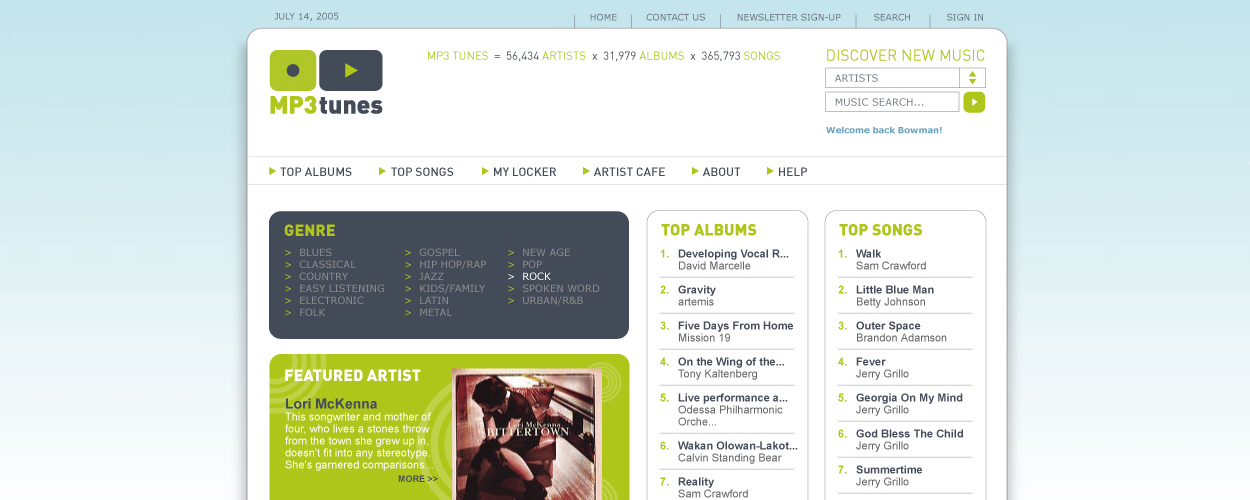
The key stories from the last seven days in the music business…
An appeal court ruling on the long-running EMI v MP3tunes case possibly increased the obligations of tech firms relying on US safe harbours. Neither EMI nor MP3tunes exist anymore, but the former’s infringement case against the latter’s digital locker and link sharing service continues. An appeals judge said MP3tunes probably should have defined ‘repeat infringer’ more widely, and should have been more proactive in stopping infringement as a result of ‘red flags’ relating to how its service was being used. [READ MORE]
Eric Clapton was sued for $5 million for allegedly mis-crediting a track on his ‘Unplugged’ album. The step-grandson of blues man Bo Carter says that Clapton incorrectly credited his peformance of ‘Alberta’ to Lead Belly, when it was in fact a rework of his step-grandfather’s song ‘Corrine Corrina’. Though one legal expert reckons that although Carter registered ‘Corrine Corrina’ in 1929, it was his version of a public domain folk song, weakening copyright claims over other adaptations. [READ MORE]
Lawyers for Dr Luke hit out at a New York Times piece on Kesha, and in particular allegations that it was the producer and his Sony label Kemosabe that were preventing the singer from releasing new material. Luke’s attorney said that – despite the ongoing legal battle between her client and Kesha – Kemosabe and another Sony label, RCA, had been liaising with the singer on her new material, and that any ongoing delays are now on her side. [READ MORE]
The Music Venue Trust called on PRS members to drop the minimum charge on the performing right licences for gigs that the collecting society administers. The live industry group says that the £38 minimum applied to a licence that otherwise charges 3% of ticket income means grass roots venues are unfairly penalised. The society’s main gig licence is already under review by PRS management, but the MVT says small venues can’t afford to wait for the outcome of that review and urged songwriters to call on the organisation to act on this one issue sooner. [READ MORE]
The boss of the US Copyright Office was basically sacked in a surprise move that has concerned many in the creative community and American IP sector. The so called Register Of Copyrights, Maria Pallante, was transferred to another job within the Library Of Congress under which the Copyright Office sits, though she later confirmed she wouldn’t accept that role. Although the Register Of Copyrights doesn’t have much actual power over intellectual property policy, it is nevertheless an influential role, with Congress often looking to whoever is in that job for guidance on copyright issues. [READ MORE]
It emerged that Spotify had let a number of its deals with video-content providers like Vice and Comedy Central lapse. The streaming service had previously announced deals with the media firms when it launched its new video offer. Although Vice said it thought Spotify was bailing on video entirely, the streaming music firm denied that was so, saying it was just rejigging its video line-up. It seems Spotify’s priority now is probably its own original video content. [READ MORE]
The big deals from the last seven days in the music business…
• Abba confirmed they were working with Simon Fuller on a VR venture [INFO]
• Sony Music bought into live music platform Gigmit [INFO]
• Time Out bought ticketing service YPlan [INFO]
• Roc Nation signed Gavin Rossdale [INFO]
• BMG signed German DJ and producer Robin Schulz [INFO]
• Sony/ATV signed ABC’s Martin Fry [INFO]
READ MORE ABOUT: Bo Carter | Dr Luke | EMI | Eric Clapton | Kesha | Maria Pallante | MP3tunes | Music Venue Trust | PRS For Music | Spotify | US Copyright Office
Friday 28 October 2016, 10:48 | By Chris Cooke
Eric Clapton sued for $5 million over incorrectly named Unplugged song
Artist News Business News Labels & Publishers Legal Top Stories

Eric Clapton is on the receiving end of an interesting if slightly complicated new copyright lawsuit, reports of which first surfaced earlier this month and more information on which has become available this week. He is being sued by the step-grandson of the late blues artist Bo Carter, who claims Clapton incorrectly named and credited a cover on his ‘MTV Unplugged’ album, depriving his step-grandfather’s estate of royalties.
The Clapton record’s tracklisting includes the song ‘Alberta’, which is credited as being a specific arrangement of a traditional song by Huddle Ledbetter, aka Lead Belly. But Miles Floyd, whose mother married Carter’s son Ezell Chatmon, says the song Clapton performs is actually his step-grandfather’s work ‘Corrine, Corrina’, albeit using the name “Alberta” rather than “Corrina” in the lyrics.
According to Floyd’s lawsuit, Carter registered the copyright in ‘Corrine, Corrina’ in 1929 and the song was subsequently covered and reworked many times. Carter himself, when performing the piece with his group Mississippi Shieks, sometimes inserted the name “Alberta” instead of “Corrina” into the lyrics, in doing so creating a second alternative version of the song, which is what – Floyd’s legal papers claim – Clapton performed during his MTV Unplugged show in 1992.
Floyd then claims that, while Lead Belly did record a song called ‘Alberta’ in 1940, that was not musically similar to Carter’s song, or that which Clapton performed unplugged five decades later. Clapton, therefore, should have credited the song he sung called ‘Alberta’ to Carter, and royalties should have filtered through to the blues man’s estate.
Before Chatmon died in 1991 Floyd says that he promised his step-father that he would one day investigate Carter’s catalogue of music and what royalties may or may not be due, and that he began doing just that following his mother’s death.
Confirming the new lawsuit against Clapton, on which Warner Music and numerous other music companies are also named as defendants, Floyd’s legal rep Barry Shrum told The Tennessean this week: “This is a situation where you have the estate, the rightful owners of Bo’s intellectual property, just trying to get what’s rightfully theirs and get credit where credit is due. Bo created this song and started, in essence, a genre in music and influenced many performers in the future, and he deserves that credit”.
However, beyond assessing the facts as presented in Floyd’s legal action, there are other complexities here. Law lecturer Charles Cronin, also interviewed by The Tennessean, says he investigated Carter’s copyright claim over ‘Corrine, Corrina’ when Floyd sued Rod Stewart last year in relation to his recording of the song in 2013, a lawsuit subsequently dropped.
Cronin reckons that what Carter registered in 1929 was his version of a public domain folk song, citing documents that suggest another artist released a recording of ‘Corrine, Corrina’ as early as 1926. That would mean that subsequent variations of the piece could be reworks of the public domain original rather than Carter’s specific version, which would hinder the copyright claim now being made by Floyd.
The academic wrote of the lawsuit against Stewart: “In short, there is no single or identifiable author for ‘Corinna Corinna’. The many versions of it – including Rod Stewart’s – simply represent accretions to a public domain folk song. The fact that the plaintiff may have been the first to secure and renew a copyright registration for his version of the song doesn’t prevent others from using what appears to be a work in the public domain”.
Neither Clapton nor any of the music firms sued by Floyd have responded as yet to the lawsuit, which was filed earlier this month and demands a credit for Carter on the ‘MTV Unplugged’ album and back payment of royalties, with a claim for damages that tops $5 million.
READ MORE ABOUT: Bo Carter | Eric Clapton | Ezell Chatmon | Miles Floyd
Friday 28 October 2016, 10:45 | By Chris Cooke
Tech firms tell music industry “technologies themselves cannot be bad actors”
Business News Digital Labels & Publishers Legal

The super-fun sounding Internet Infrastructure Coalition, which represents a flurry of tech firms, has hit out at the recent submissions to the US Trade Representative’s ‘Notorious Markets’ report from the American music and movie industries.
As previously reported, in its annual submission to the Trade Representative’s report on key piracy platforms and the countries that host them, the Recording Industry Association Of America had a little moan about reverse proxy services like CloudFlare which, it said, are helping piracy sites hide their actual location.
The RIAA wrote to the US government department: “[Piracy sites] are increasingly turning to Cloudflare, because routing their site through Cloudflare obfuscates the IP address of the actual hosting provider, masking the location of the site … the use of Cloudflare’s services can also act to frustrate site-blocking orders because multiple non-infringing sites may share a Cloudflare IP address with the infringing site”.
While the RIAA wasn’t actually taking aim at Cloudflare directly – it being a legitimate internet services company – the record industry trade group did seem to be suggesting that the providers of such technologies should do more to stop piracy set ups from utilising their services. The industry association also said that domain hopping and anonymous domain name registrations hindered its efforts against piracy websites.
The IIC has now hit out at the RIAA and its movie industry counterpart the MPAA for “vilifying” certain technologies rather than specific piracy set-ups that may use them, perhaps aware that the BitTorrent protocol and the company behind it has always had to battle an association with file-sharing simply because file-sharers use it.
The IIC writes that “technologies themselves cannot be bad actors”, and that the entertainment industry shouldn’t be allowed to use “the vilification of technology” in order to force “internet infrastructure companies to act as intermediaries in intellectual property disputes. This is not the answer to intellectual property infringement, and proposals to expand the use of these companies as intermediaries are misguided”.
The tech industry group then says: “The internet infrastructure industry generates more than $100 billion in annual revenue and is growing at a rate of nearly 20% per year. Creating regulatory and legal hurdles to the industry’s progress will not only negatively impact the architecture and viability of the global internet, it will also impact the overall economy, which is dependent on the continued growth of the internet infrastructure industry”.
Of course, the music and movie industries would probably argue that the tech giants could use some of that $100 billion to ensure their technologies and platforms aren’t being widely used by copyright infringers.
Though tech firms will always argue that – even if they were to try to cut off the pirates tapping their services – they need court orders to confirm who exactly the pirates are. Which is harder in the US where web-blocking proved too controversial to get underway, meaning you don’t have regular judgements in the courts confirming the copyright infringing status of both the usual suspects and newer piracy players.
READ MORE ABOUT: Internet Infrastructure Coalition | Recordings Industry Association Of America (RIAA)
Friday 28 October 2016, 10:40 | By Chris Cooke
Twitter announces job cuts and axes Vine
Business News Digital

Twitter’s revenues and active userbase were both up last quarter, though with recent efforts to find a buyer for the social media firm unsuccessful and revenue growth overall slowing down – but with executives there still talking about going into profit sometime next year – a large axe fell at the company yesterday.
About 350 jobs – which is 9% of the firm’s overall workforce – will go, while senior management are talking about putting all the focus on key products. Which means goodbye to the once-buzzy short-short-short-form video app Vine.
Twitter acquired the company behind the six-second-videos-on-a-loop app just months after it was founded in 2012, with the service officially launching in January 2013. Despite enjoying some success, and the format being adopted by some online creators, the service quickly faced competition when Facebook added video to its Instagram app.
Confirming that the Vine app would be retired “in the coming months”, Twitter told users of the service yesterday: “We value you, your Vines, and are going to do this the right way. You’ll be able to access and download your Vines. We’ll be keeping the website online because we think it’s important to still be able to watch all the incredible Vines that have been made. You will be notified before we make any changes to the app or website”.
READ MORE ABOUT: Twitter | Vine
Friday 28 October 2016, 10:33 | By Chris Cooke
Video service Vessel to wind down following Verizon acquisition
Business News Digital

US internet firm Verizon has bought streaming video start-up Vessel with bold plans to, erm, well, shut it down. Good times.
Vessel was founded by two former chiefs at American TV-on-demand service Hulu and offered short-form video with the USP that users had to pay to get access to the very latest content. The hope was that it might persuade the YouTube generation to start paying to watch online videos, and Warner and Universal were among the music companies who signed-up to experiment with the new service. But, despite a lot of hype at launch, Vessel didn’t seem to maintain the momentum.
Verizon is interested in the firm’s technology rather than its current service, with a blog post from Vessel explaining: “At the heart of this transaction is the Vessel technology, product and team that we have built. These three things will be married with Verizon’s ambitions in online video. Though the team, and the actual tech and product, will live on at Verizon in ways that will become apparent in the months and years ahead, sadly we will be sun-setting the Vessel service at the end of this month”.
Subscribers to the service will get a pro-rata refund back to the start of October, so their last month of Vesseling will be gratis. Co-founder Richard Tom will become CTO for Verizon’s expanding digital entertainment operations, though the other founder, Jason Kilar, will “ensure a smooth transition through the end of this year” and then seemingly move on to another short-form adventure.
READ MORE ABOUT: Vessel
Friday 28 October 2016, 10:30 | By Chris Cooke
BBC Radio Scotland announces music-centric pop up, as former Xfm Scotland licence goes to all-new Rock Radio
Business News Media

The BBC has announced another one of those pop-up radio stations, this one in Scotland celebrating the country’s “richly diverse musical landscape” in the run up to St Andrew’s Day. BBC Radio Scotland Music Extra will broadcast from 23-30 Nov on DAB, online and on the iPlayer Radio app.
Across the schedule there will be time for “everything from rock and pop to country, traditional and jazz”, with presenters on the temporary station including radio DJs Jenny Farish and Bryan Burnett, actor Sanjeev Kohli and Ricky Ross off of Deacon Blue. There’ll also be repeats of shows from the archive and live sessions from the likes of Simple Minds and Travis.
Says Head Of Radio at BBC Scotland, Jeff Zycinski, of the eight day venture: “This is a fabulous opportunity for us to celebrate the brilliant music that is made and heard right across Scotland. You will hear the familiar, from Americana and classical to country and folk, but the station will also showcase new talent and explore the issues that impact the Scottish music industry”.
The BBC exec also alluded to the fact that the temporary station was in part assessing the appetite for such a service longer term, adding that BBC Radio Scotland Music Extra would “give listeners the chance to tell us if they would welcome a station that offers an alternative to BBC Radio Scotland’s successful speech schedule”.
Elsewhere in Scottish radio news, media regulator OfCom has awarded the old Xfm Scotland frequency to Rock Radio. Xfm operator Global gave up the slot on the airwaves in West Central Scotland when it revamped the station as Radio X last year, because OfCom rules wouldn’t let it simply air the new entirely-London-based service on the FM channel without any local programming.
A station called Rock Radio broadcast on the same frequency from 2007 to 2011, before being rebranded as Real XS and then, after Real Radio owner GMG Radio was acquired by Global, becoming the second incarnation of Xfm Scotland. The all-new Rock Radio is being led by people who worked at the previous station using that name.
READ MORE ABOUT: BBC | BBC Radio | BBC Radio Scotland | Rock Radio
Friday 28 October 2016, 10:25 | By Andy Malt
Rick Parfitt announces retirement from Status Quo
Artist News Gigs & Festivals
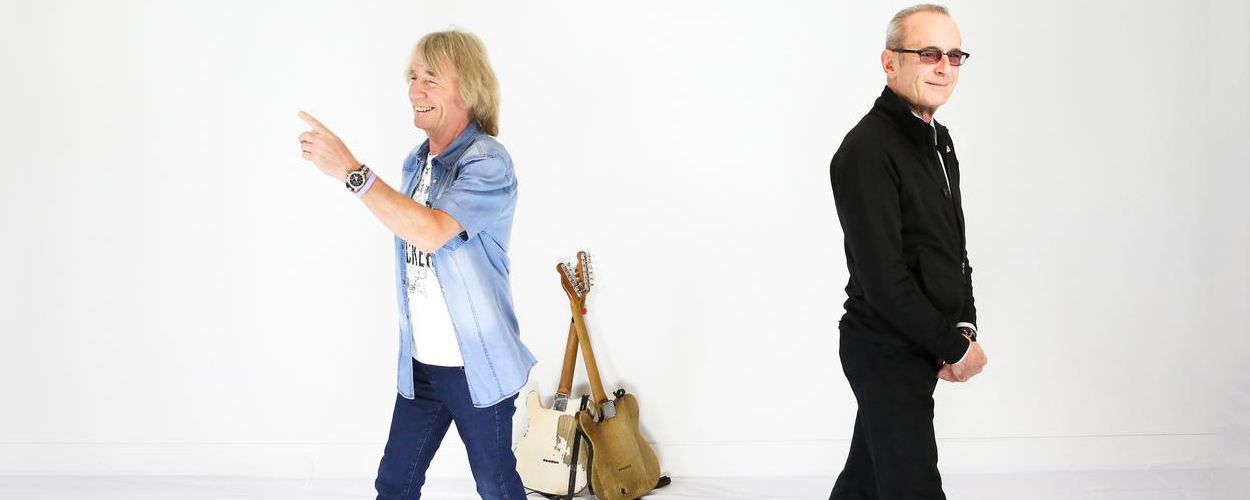
Earlier this year, Status Quo announced plans to hang up their electric guitars and only play acoustic shows after one final full-scale tour. However, with the first of those finale electric shows due to take place tonight in Belfast, guitarist Rick Parfitt has said that he is actually bowing out from the group altogether with immediate effect.
Parfitt has had three heart attacks since 1997, the most recent and most serious in June this year shortly after playing a show in Turkey, leaving him clinically dead for several minutes. Despite making a recovery, his health has not returned to a point that would mean he was able to play the upcoming tour. And although it was hoped that he would return for any subsequent acoustic shows, he has now said that this will not be the case.
“I don’t think I really want to”, he told Classic Rock. “In my heart I’m a rocker, I’ve always been. If I’m going to make music it’s got to rock. There would probably have been room for me if I decided I wanted to [be part of those shows], but I’m not a great fan of the whole acoustic malarkey. It doesn’t float my boat. What I am disappointed in is missing the last of the band’s electric shows”.
On the current state of his health, he added: “As the weeks pass I’m better and better. I don’t know whether I will be able to improve on that because I feel as well as I did when I fell over. So I can’t complain. I’ve just passed my driving test – which was incredibly stressful at my age – but I’m mobile again now, so that’s a big difference”.
He added that it had been frontman Francis Rossi’s decision to bring the band’s full-on touring days to an end and switch to acoustic performances, which he had argued against prior to his latest heart attack. As for the future of the group, he said: “Francis will do what Francis will do. I shall not say anything to the contrary because I don’t want any bad feeling. After 50 years of travelling the world together that’s the very last thing I want”.
Parfitt will be replaced by Richie Malone on the ‘Last Night Of The Electrics’ tour, which runs into December.
READ MORE ABOUT: Rick Parfitt | Status Quo
Friday 28 October 2016, 10:20 | By Andy Malt
Pussy Riot release third Trump-baiting track of the week
Artist News Releases
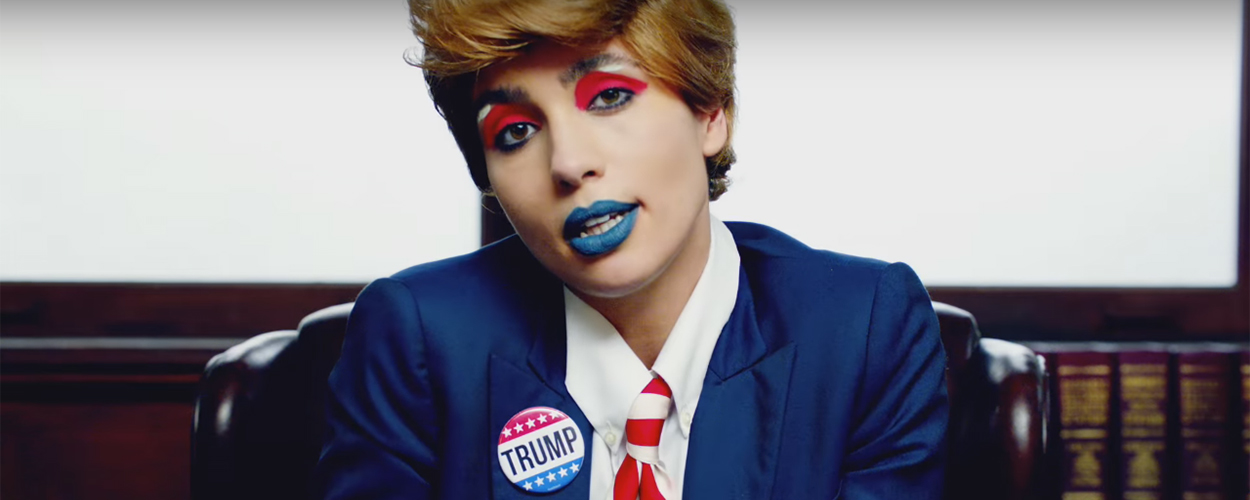
Bloody hell, Pussy Riot aren’t messing about. The group’s Nadya Tolokonnikova has released her third new track of the week.
Where the two previous songs, ‘Straight Outta Vagina’ and ‘Organs’, have responded to Donald Trump’s views on women, the video for ‘Make America Great Again’ imagines a world where he has won the upcoming presidential election, while lyrically the song suggests a better future.
All three tracks feature on an EP called ‘XXX’, released today. Watch the video for ‘Make America Great Again’ here:
READ MORE ABOUT: Donald Trump | Pussy Riot
Friday 28 October 2016, 10:17 | By Andy Malt
BBC Music Awards happening again this year, despite everything
Artist News Awards Media

In honour of all the music greats that have died this year, you’d think the BBC could have killed off its entirely pointless music awards ceremony. But no, it’s happening again. Oh Lord, when will it end? Will you agree to axe it if both McCartney and Jagger kick the bucket this side of Christmas?
The third annual excuse for BBC execs to hang out with super cool popstars will take place at London’s ExCeL venue on 12 Dec. It’ll be presented by Fearne Cotton and Claudia Winkleman, and if that weren’t bad enough, there will be performances from Michael Bublé, Kaiser Chiefs, Lukas Graham, Zara Larsson, Emeli Sandé and The 1975.
“From Glastonbury to the BBC Proms, BBC Music has brought some of this year’s most memorable musical moments to millions of music lovers”, says BBC Music director Bob Shennan. “This year’s BBC Music Awards, to be hosted by two of the UK’s best loved presenters Fearne and Claudia, will shine a light on a fantastic range of incredible artists for what’s sure to be a spectacular night of entertainment”.
Yeah, sure. He makes it sound like the event will recognise a diverse range of artists from across BBC Radio’s broad musical spectrum, when in fact it’ll likely just give gongs to artists already drowning in awards. Last year, you may remember, Adele received two of the prizes, Taylor Swift got another, ‘Take Me To Church’ by Hozier was deemed the song of the year, and Jack Garrett was named the new artist to watch out for in 2016, like every other fucking award for artists to watch out for in 2016.
This year they’re rejigging things a bit, ditching the International Artist Of The Year and BBC Live Performance Of The Year prizes. In their place will be BBC Radio 1 Live Lounge Performance Of The Year and BBC Radio 2 Album Of The Year. Which I guess could boost the musical diversity a little. Except I’m going to assume the latter is being given to Michael Bublé in order to get him to turn up, given that they failed to follow the BRITs’ lead in booking him as host.
The remaining awards are British Artist Of The Year, Song Of The Year and BBC Music Introducing Artist Of The Year, all of which will be presented at a show broadcast live on BBC One, with some stuff also thrown up on Radio 1 and Radio 2. At the end of it all, everyone will be thoroughly confused about what exactly the point of the whole money-burning exercise was. Though to be fair, the BBC has now made that an annual pre-Christmas tradition.
READ MORE ABOUT: BBC | BBC Music Awards
Friday 28 October 2016, 10:10 | By Andy Malt
CMU’s One Liners: Lady Leshurr, Killer Mike, Avenged Sevenfold, more
Artist News Awards Brands & Merch Digital One Liners Releases
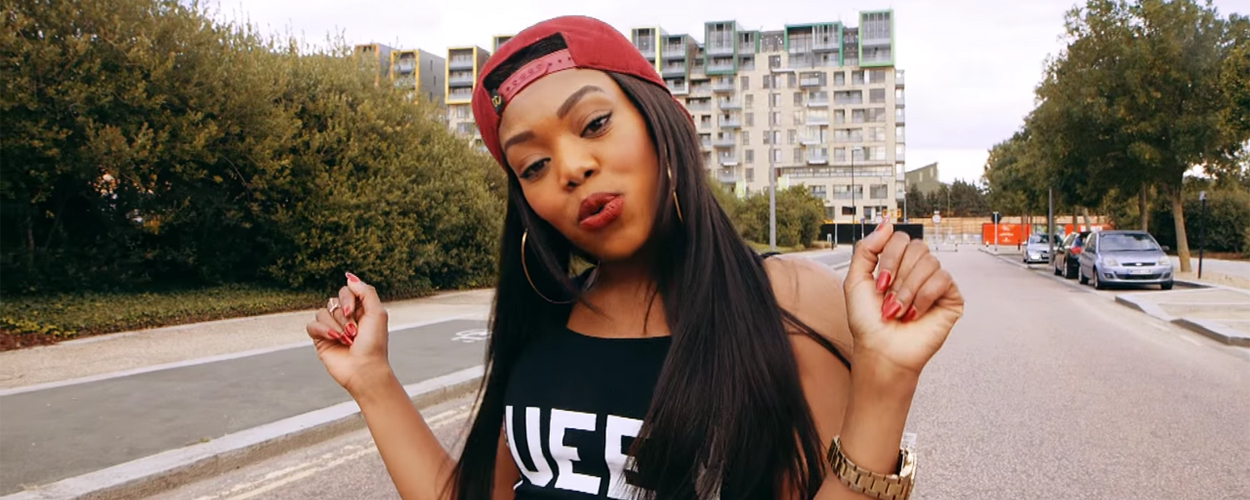
Other notable announcements and developments today…
• Lady Leshurr fronts a new video for the MOBOs’ previously reported campaign to drive more blood donations from black and Asian communities.
• Tom Delonge wasn’t the only musician whose name came up in those leaked Hillary Clinton emails. Clinton staffers also discussed Killer Mike’s endorsement of Bernie Sanders. You don’t need to scour Wikileaks to see what was said though, as the rapper’s had it printed on a t-shirt.
• Avenged Sevenfold topped off their live streamed virtual reality show yesterday by announcing the surprise release of new album ‘The Stage’. Their seventh LP is their first for Universal/Capitol. You can watch the gig on Facebook until tomorrow morning here.
• Little Mix have released new album track ‘Glory Days’.
• A$AP Rocky has released a new Tyler, The Creator collaboration, ‘Telephone Calls’, taken from A$AP Mob’s upcoming new mixtape, ‘Cozy Tapes Vol 1’.
• Here’s Hudson Mohawke’s remix of ‘Midnight In A Perfect World’ by DJ Shadow.
• Q-Tip has announced that A Tribe Called Quest will release their final album on 11 Nov.
• Charli XCX has released Lil Yachty collaboration ‘After The Afterparty’.
• Blood Orange has released a video for ‘I Know’, taken from his ‘Freetown Sound’ album.
• Subscribe to our weekly playlist of new music on Spotify.
READ MORE ABOUT: A Tribe Called Quest | A$AP Mob | A$AP Rocky | Avenged Sevenfold | Blood Orange | Charli XCX | DJ Shadow | Hillary Clinton | Hudson Mohawke | Killer Mike | Lady Leshurr | Lil Yachty | Little Mix | MOBO Awards | Q-Tip | Tyler The Creator
Friday 28 October 2016, 10:04 | By Andy Malt
CMU Beef Of The Week #329: Phil Collins v Paul McCartney
And Finally Artist News Beef Of The Week
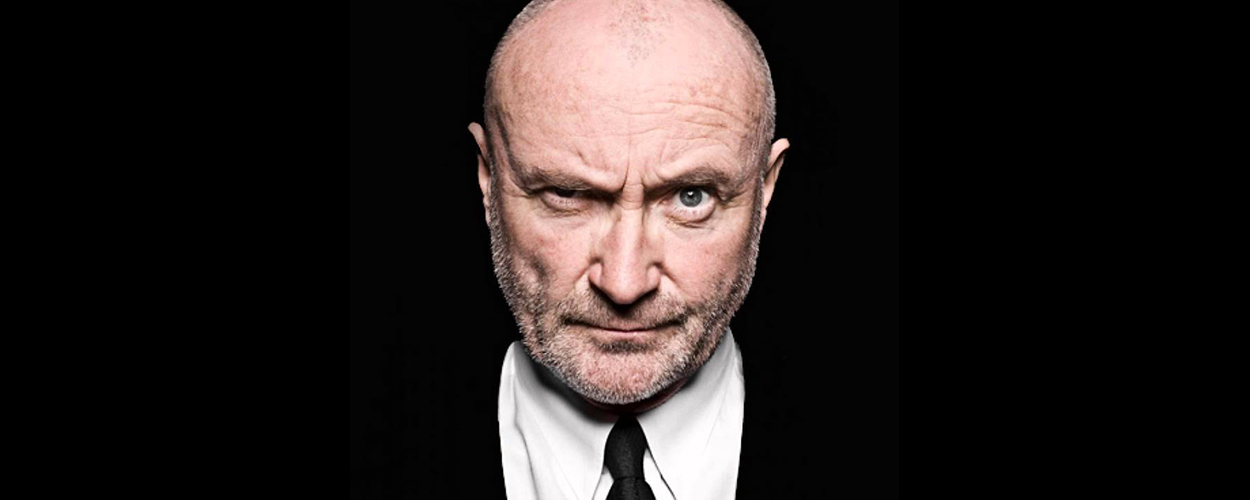
Hey, so Philip Collins is back and everyone is excited, even though I don’t think my generation ever got the memo about him being cool again. Despite having promised never ever ever to sing any of his songs ever, he’s planning to tour around and sing some of his songs in venues across Europe. Including in the UK, which is still, as it fucking should be, part of Europe.
Doing a few gigs isn’t enough these days though, so he’s also put all his records out in the futuristic format of The Kids – aka vinyl – and published an old fashioned book about his life too. It’s the last of these things that’s been causing problems. Because Paul McCartney don’t like it. And he’s a Beatle.
Speaking to The Sunday Times to promote the book, Collins recounted a story about meeting McCartney at Buckingham Palace that also features in his memoir. “I’ve got to preface this by saying McCartney was one of my heroes”, Collins began, reminding everyone that both of them have be touted as ‘the nicest man in pop’ at different (or may even the same) times. “But he has this thing when he’s talking to you, where he makes you feel… ‘I know this must be hard for you, because I’m a Beatle. I’m Paul McCartney and it must be very hard for you to actually be holding a conversation with me'”.
Oh, come on, Phil. If you’re going to start throwing around accusations about Paul McCartney – a man who in his day was almost as nice as Justin Bieber – you’re going to have to give some more specific examples.
With minor nudging, Collins continued: “I met him when I was working at the Buckingham Palace ‘Party At The Palace’ thing back in 2002. McCartney came up with Heather Mills and I had a first edition of ‘The Beatles’ by Hunter Davies and I said, ‘Hey Paul, do you mind signing this for me?’ And he said, ‘Oh Heather, our little Phil’s a bit of a Beatles fan’. And I thought, ‘You fuck, you fuck’. Never forgot it”.
That does make old McCartney sound like a bit of arse, doesn’t it? Especially as Phil Collins had clearly brought a special book with him for the purpose of having it signed, even though the cool thing to do back stage at the Queen’s house is clearly to march around with no books that are in need of signing.
“Oh Heather, our little Phil’s a bit of a Beatles fan”. There really is no situation where saying those words sound good. Not even if you weren’t Paul McCartney and Phil wasn’t Phil Collins and you weren’t backstage at Buckingham Palace. Try saying those words to the person next to you right now. They will almost certainly reply, “You fuck, you fuck”.
But, as we’ve learned recently, Paul McCartney is all hearing and all knowing, and Philip Collins’ words quickly got back to him and made him feel sad.
“He’s been in touch about it because he was upset”, Collins told Billboard days later. “I’m afraid it happened, you know, and I’m afraid it affected me the way it did and I’m afraid I wrote about it. I think maybe I should just brush it under the carpet and forget about it and move on, but it did happen”.
Discussing their recent exchange, Collins added: “I certainly didn’t get any flowers from him; I got more of a ‘let’s just get on with our lives’. And I’m sorry he’s upset that I kinda said something nasty about him – well, it wasn’t really nasty. If people don’t tell people that sometimes their attitude could be a bit better then you’re not gonna get any better, y’know?”
Yeah, I know. So let’s just hope all this has proven to be a valuable learning experience for Macca. Although it sounds like it wasn’t. Paul, if you’re reading, and I’m sure you are, you need to buck up your ideas, man. You’re not Ringo Starr, you can’t get away with strolling around the place being unpleasant to people.
READ MORE ABOUT: Paul McCartney | Phil Collins
Friday 28 October 2016, 09:14 | By Paul Vig
Vigsy’s Club Tip: Drumcode Halloween After Dark at Studio Spaces
Club Tip CMU Approved

A big one for London’s technoheads, Drumcode Records’ Halloween party returns to the rather good Studio Spaces.
The awesome Adam Beyer will head the whole thing up, with big hitter Mr Stacey Pullen from the US of A also on duty. Add to that Alan Fitzpatrick, Julia Govor, Marcel Fengler and Sam Paganini, and you’ve got something pretty special on your hands.
Saturday 29 Oct, Studio Spaces E1, 110 Pennington Street, Wapping, London, E1W 2BB, £25, 10pm-6am. More info here.
READ MORE ABOUT: Adam Beyer | Drumcode Records
Friday 28 October 2016, 09:04 | By Andy Malt
CMU Podcast: Music Venue Trust, virtual reality, Justin Bieber
Artist News Business News Digital Labels & Publishers Live Business Setlist

CMU’s Andy Malt and Chris Cooke review key events in music and the music business from the last week, including the Music Venue Trust’s open letter calling for an end to PRS For Music’s minimum fee for live shows, the latest developments in virtual reality for music, and Justin Bieber’s campaign against screaming. The CMU Podcast is sponsored by 7digital.
Subscribe to the CMU Podcast
Listen to the CMU Podcast and sign up to receive new episodes automatically each week through any of these services…
iTunes | audioBoom | SoundCloud | Stitcher | Spreaker | TuneIn | Mixcloud | RSS
Stories discussed this week:
• Music Venue Trust urges songwriters to support an end of minimum fees on PRS gigs licence
• Avenged Sevenfold to live-stream virtual reality show tomorrow
• Boiler Room announces virtual reality venue
• Abba working on virtual reality project with Simon Fuller
• Justin Bieber walks off stage in Manchester, chats biology with ‘respectful’ Birmingham audience
In brief:
• MP3tunes appeal might raise the obligations of safe harbour dwellers
• Cliff Richard’s lawsuit could cost BBC and South Yorkshire Police £1.5 million
• Kesha’s New York Times profile part of a “co-ordinated campaign to mislead the public”, says Dr Luke’s lawyer
• Spotify lets video licences lapse, insists it remains committed to video
• Bob Dylan still quiet on Nobel win, organisers warn he may lose prize money
READ MORE ABOUT: Abba | Avenged Sevenfold | BBC | Bob Dylan | Boiler Room | Cliff Richard | Dr Luke | Justin Bieber | Kemosabe Records | Kesha | MP3tunes | Music Venue Trust | Nobel Prize | PRS For Music | Simon Fuller | Sony Music | South Yorkshire Police | Spotify | XIX Entertainment
Thursday 27 October 2016, 09:58 | By Andy Malt
Kesha’s New York Times profile part of a “co-ordinated campaign to mislead the public”, says Dr Luke’s lawyer
Artist News Business News Industry People Labels & Publishers Legal Media Top Stories

Legal representatives for producer Dr Luke have reacted angrily to a newly published profile on Kesha in the New York Times Magazine. They claim that the article contains “many inaccuracies” and falls into a “continuing co-ordinated press campaign by Kesha to mislead the public”.
The main focus of the article is the career limbo in which Kesha finds herself as she continues to pursue legal action against Luke, with whom she has various active deals, including with his Sony Music imprint Kemosabe. She is described in the piece as “a popstar suspended in a Jell-O mould of paralysis, unable to put out new music until all of this is resolved”.
Kesha’s accusations against the producer of rape and later verbal abuse are reiterated, alongside a discussion of the new music she has recorded but has been unable to release as of yet. It also says that “Kesha has no ability to earn money, outside of touring for audiences of a few hundred, paying expenses from her own pocket”, suggesting that Luke maybe suppressing her new music as a means to ensure that she runs out of funds to continue with her litigation.
All of which is disputed in a lengthy statement from Dr Luke’s lawyer, Christine Lepera.
“The reality is that for well over two years, Kesha chose – and it was entirely her choice – not to provide her label with any music”, says Lepera. “Kesha was always free to move forward with her music, and an album could have been released long ago had she done so. She exiled herself”.
Lepera continues: “[Kesha] provided 22 recordings [in June and July this year] created without any label consultation which were not in compliance with her contract, were in various stages of development, and which Kesha’s own team acknowledged needed work. Then, and for the last several months, the label has been in discussions with Kesha and her team to choose the best music, create additional music, and work on the tracks created”.
A list of agreed producers has been signed off by both sides, a studio booked and budget set aside, the lawyer says, suggesting that it is now Kesha who is holding up the process.
Lepera concludes: “Kesha’s claim in the article that she has no ability to earn money outside of touring is completely rebutted by well documented public court records which apparently escaped the article’s attention”.
As much previously reported, Kesha’s legal battle with Dr Luke is a long and complex one, at one point straddling courts in three separate states. The key focus for most observers has been her accusations that he drugged and raped her as a teenager. He denies these claims, saying that she made these allegations in a bid to force his hand in a contractual dispute – something reiterated in Lepera’s statement, and which she says “backfired”.
Earlier this year, Kesha attempted to gain a temporary injunction allowing her to record for a label other than Sony Music, in the short term at least, in the main so that she could work without the interaction of Luke. This was rejected by the court, the judge saying that this would undermine New York State contract law and that, anyway, Sony had committed to allow her to work with another producer and imprint at the major music firm.
The other issue in that part of the dispute was that Kesha’s deal is not with Sony direct, but is funnelled through a number of Luke’s companies. She raised concerns that there was no guarantee that Sony would put any effort into promoting her new work, and that the structure of her deal meant that anything she did with the major label would still put money into the hands of the man she accuses of abusing her.
Although the PR war has generally gone in Kesha’s favour, especially this year, court proceedings have tended to side with Luke. As more of Kesha’s case has been eroded, she voluntarily dismissed litigation in California in August, that having been previously placed on hold while the breach of contract proceedings in New York continued. On that front, Kesha said later in August that she would no longer include the abuse allegations in that case.
Despite the ongoing litigation, earlier this month Sony Music told Buzzfeed that it hoped to release new music from the musician “soon”, though her lawyer, Daniel Petrocelli, then said that his client had received “no commitments” with regard to this.
Meanwhile the New York Times profile made those new claims that her music was actually being suppressed. “Dr Luke has insisted Sony’s participation is just an ‘accommodation’ and has not denied that all decisions regarding the album are still being made by Dr Luke”, a rep for the singer told the publication.
Commenting on the article via Instagram, Kesha herself said: “Thank you to the New York Times for shedding light on my life and legal situation. There’s nothing harder than dreaming and working and fighting for something your whole entire life, since you were three years old, since you could speak. And you FINALLY achieve it. And then have someone else take it away from you. My heart has a giant hole in it and is literally aching and throbbing from sadness and loss. Imagine someone owning your voice… and not letting you sing. Singing is how I have dealt with everything in my life. And my right has been taken away”.
Read the New York Times article here, and Dr Luke’s full response here.
READ MORE ABOUT: Christine Lepera | Dr Luke | Kemosabe Records | Kesha | New York Times | Sony Music
Thursday 27 October 2016, 09:55 | By Chris Cooke
Prince’s “brother” cut from $300 million estate
Artist News
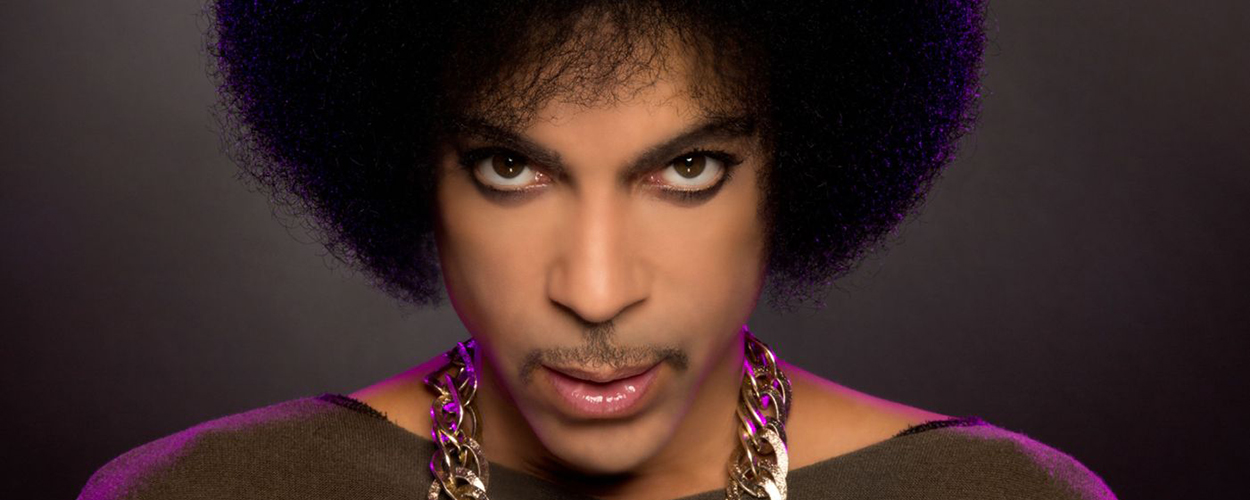
The legal wrangling to work out who are the legitimate heirs of Prince continues, and what we’ve learned this week is that just because you refer to someone as your “brother” that doesn’t make them your brother, not in the eyes of the law anyway. Who knew?
As previously reported, Prince died earlier this year without making a will, and various parties subsequently came forward claiming to be a legal heir to his estate, which is estimated to be worth around $300 million. His sister and five half-siblings have been confirmed as heirs, but many others have been rejected by the judge overseeing the proceedings, including people who claimed that Prince was their biological or adoptive father, and a woman who claimed to have married the singer.
The latest claims to be rejected came from the heirs of a man who Prince often referred to as his “brother”, Duane Nelson. But Duane wasn’t, in fact, Prince’s brother. Though, to be fair to these two claimants, the musician wasn’t just using the word ‘brother’ in the slang sense to mean friend. They argued that Prince’s father, John L Nelson, had treated Duane as if he was his son, creating a “family relationship”.
However, the judge, Kevin W Eide, said that under Minnesota law formal adoption must take place for an assumed child to be a legal heir. The judge ruled: “There is no case law in Minnesota or, to the court’s knowledge, anywhere in the United States that establishes for intestacy purposes where there was no genetic relationship but the parties to the relationship held themselves out to be father and son”.
Duane Nelson’s decedents are likely to appeal the ruling, while another man who claims to be the son of Prince’s non-brother has been given extra time to prove his claim that John L Nelson had intended to adopt Duane even though the formalities were never completed.
Elsewhere in Prince news, a rep for his estate says he has no knowledge of discussions with Jay-Z about Roc Nation acquiring the musician’s unreleased catalogue in a $40 million deal. TMZ says Jay-Z met with Prince’s sister Tyka Nelson to discuss the possible purchase.
Speaking for the estate, L Londell McMillan told Billboard that no formal representative of the estate has had any such discussions with Roc Nation, while stressing that any deal done around previously unreleased Prince recordings will a licensing arrangement not a sale.
It is possible, though, that Jay-Z will seek to extend the exclusivity deal his streaming service Tidal struck with Prince before his death.
READ MORE ABOUT: Jay-Z | Prince | Tidal
Thursday 27 October 2016, 09:53 | By Andy Malt
Outkast’s Big Boi launches dog shampoo range
Artist News Brands & Merch

Outkast’s Big Boi has announced a new range of dog shampoos. The collection is a collaboration with actor turned pet care product manufacturer Bobbi Panter, and is being released under the brand name Big Boi & Bobbi. And no, I’m not sure if this isn’t just really a weird dream either.
“I was fascinated by Big Boi’s love and passion for his pets and eager to learn more about this world of dogs that I didn’t know much about”, says Panter, referring to the array of bulldogs the rapper and his brother James care for at their Pitfall Kennels in Atlanta. “I was anxious to see what these breeds were all about and as I suspected, they are adorable, affectionate and lovable too. I fell in love with them all!”
Big Boi adds: “Once I saw how great Bobbi’s products are and how passionate she is about her pets and helping other animals, I knew I wanted to partner with her and get these products in even more dog owner’s hands. I look forward to the possibilities ahead for us!”
Right, so if you have a dog that stinks (and it almost certainly does), you’ll find eleven possible shampoos to rectify that with here.
READ MORE ABOUT: Big Boi | Outkast
Thursday 27 October 2016, 09:52 | By Andy Malt
Boiler Room announces virtual reality venue
Business News Digital Live Business
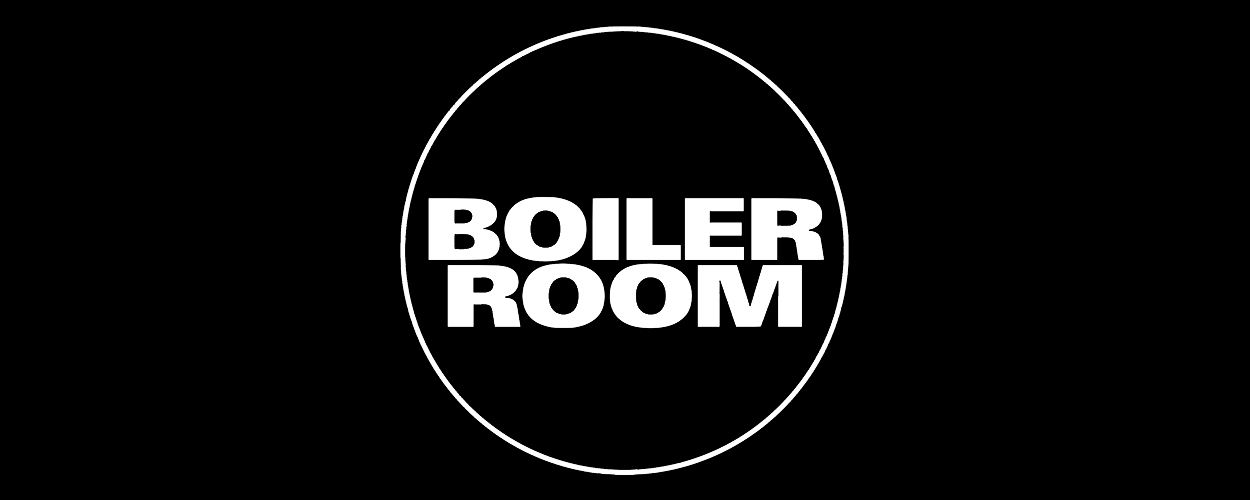
More VR? Yep, more VR. Boiler Room has announced that it will launch its live-streamed club night concept into virtual reality next year. It claims to be setting up “the world’s first VR venue” in partnership with VR content maker Inception.
“We’ve always been driven by using technology to showcase the music we care about and give fans all around the world an authentic experience of the events and scenes they can’t be part of in person”, says Boiler Room founder Blaise Bellville. “Building the first ever music venue born for VR is a big evolution of that, creating immersive online experiences that bring people even closer to what it’s like being at a sweaty rave or an amazing concert half-way across the world”.
Inception CEO Benny Arbel adds: “Our goal is to bring immersive experiences to life by providing premium VR content to users worldwide. Boiler Room’s VR venue will be the definition of immersive – everything about this site will be meticulously planned and constructed to be a dream room for any artist to create the VR show of a lifetime”.
Actually, “characterised by or relating to dipping, absorption or immersion” is the real definition of ‘immersive’, but whatever. Further details of the new Boiler Room venture are to be announced in due course, with the first shows in the VR venue expected in early 2017.
READ MORE ABOUT: Boiler Room | Inception
Thursday 27 October 2016, 09:51 | By Chris Cooke
RAJAR Round Up: 6 Music and Radio X score record audience figures
Business News Media

So, the latest radio listening figures are out everybody – yes, it’s RAJAR day yet again.
For younger readers, radio is a medium via which old people consume audio, both speech and music, through special ‘wireless’ devices which, confusingly, often have a few wires, but which receive said audio, both speech and music, through special transmissions that are delivered over the air in the form of radio waves, sometimes with an element of frequency modulation, and which the aforementioned wireless device is capable of receiving, so that the aforementioned old people can tune into to said transmissions of audio as and when they wish. It’s a bit like YouTube. But without the pictures. And without the option to choose the music. And you can’t skip the ads. And you can’t write angry comments next to things you just watched. So, basically, it’s like a shit YouTube.
Anyway, let’s see who’s been listening to the radio this summer, shall we? Yes, it’s our five point summary of those bloody RAJARs.
1. Just over nine million people were listening to Chris Evans on Radio 2 over breakfast in recent months, which sounds good, though that’s 400,000 less than earlier this year. Radio 2, meanwhile, saw its overall listening numbers slip by 150,000 to 15.1 million.
2. Over on Radio 1 Nicky Boy Grimshaw managed to persuade 200,000 of his listeners to turn off, so that 5.25 million people are now tuning into to his breakfast show. Though Radio 1 in general had a pretty good quarter, with overall audience up 400,000 to 9.87 million.
3. Good old 6 Music continues to out-perform itself, scoring a new record audience of 2.34 million listeners. Let’s once again spend six seconds remembering that time they tried to shut this digital station down.
4. In commercial radio land, Global Radio would like you all to know that the Capital “brand” now reaches 8.7 million listeners, up 213,000 on the last set of RAJAR figures and 732,000 year on year. It’s also the most popular commercial radio outlet in the actual capital. By which I mean London. Sorry Edinburgh.
5. Oh, and the Radio X experiment does now seem to be paying off, the revamped Xfm currently reaching 1.3 million listeners each week, its highest audience ever. Though Chris Moyles is still talking to a far smaller audience than in his Radio 1 days. But hey, that’s probably a good thing.
In the mood for more RAJAR chit chat? Here’s radio expert Matt Deegan with his thoughts.
READ MORE ABOUT: RAJAR




